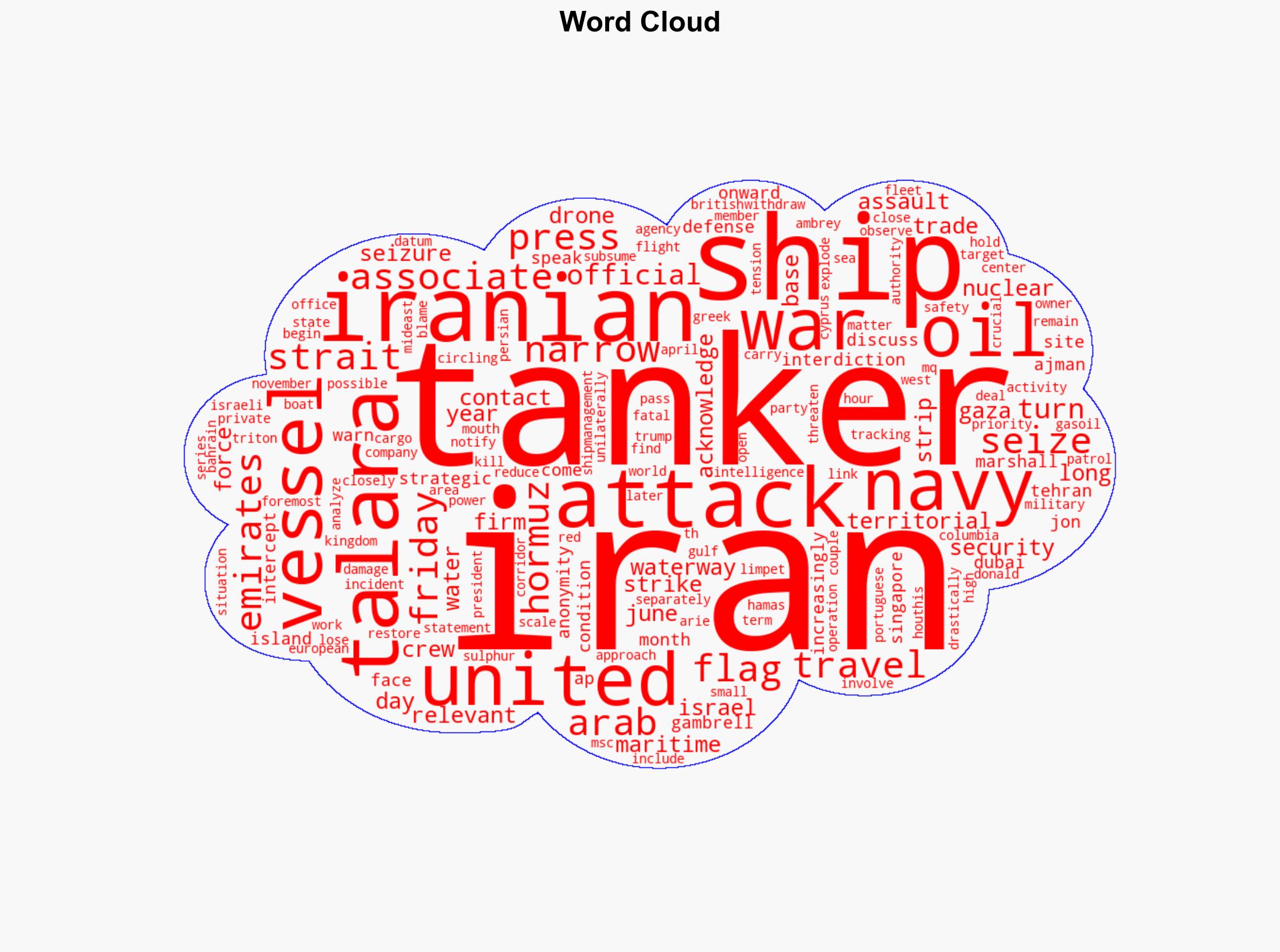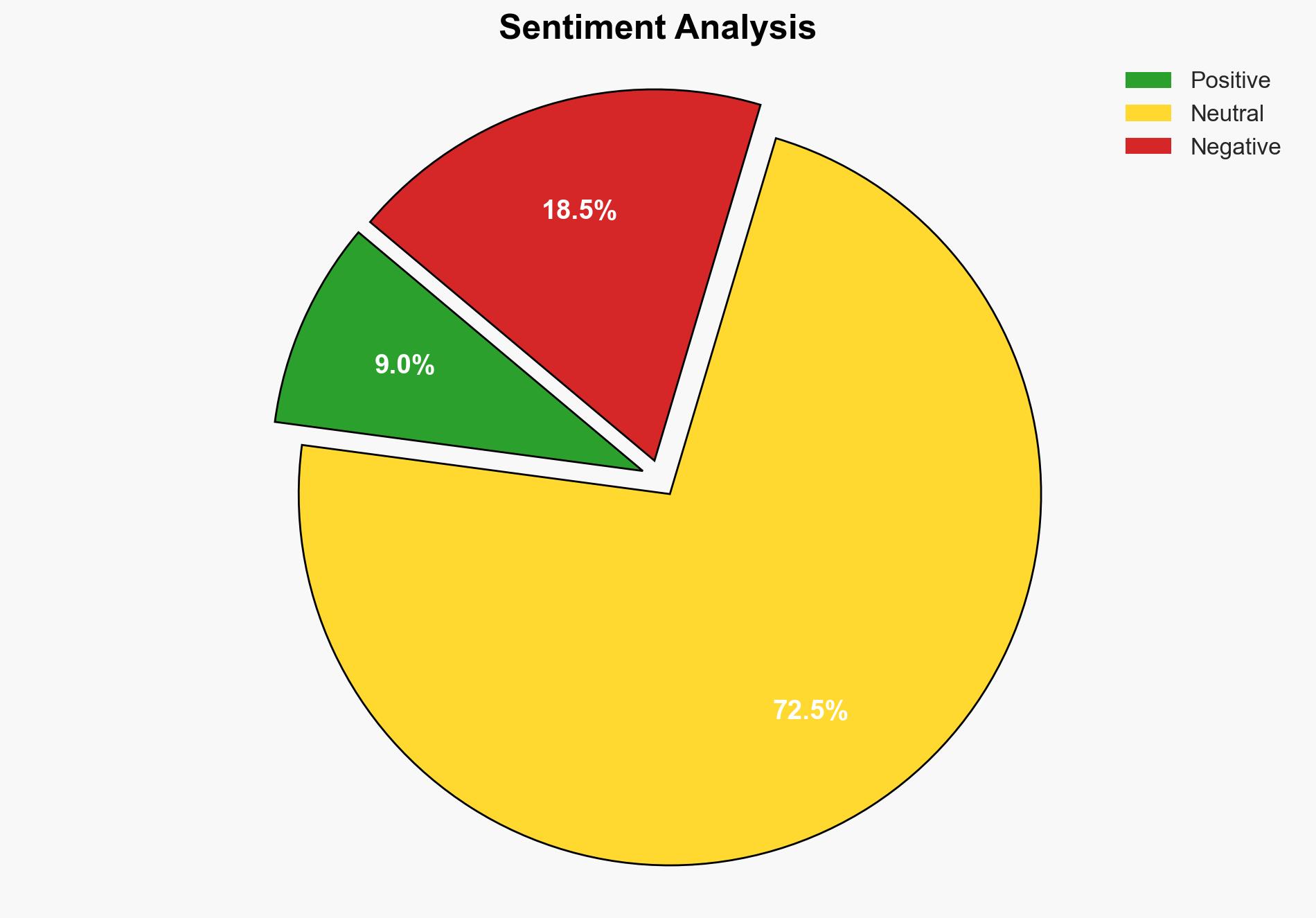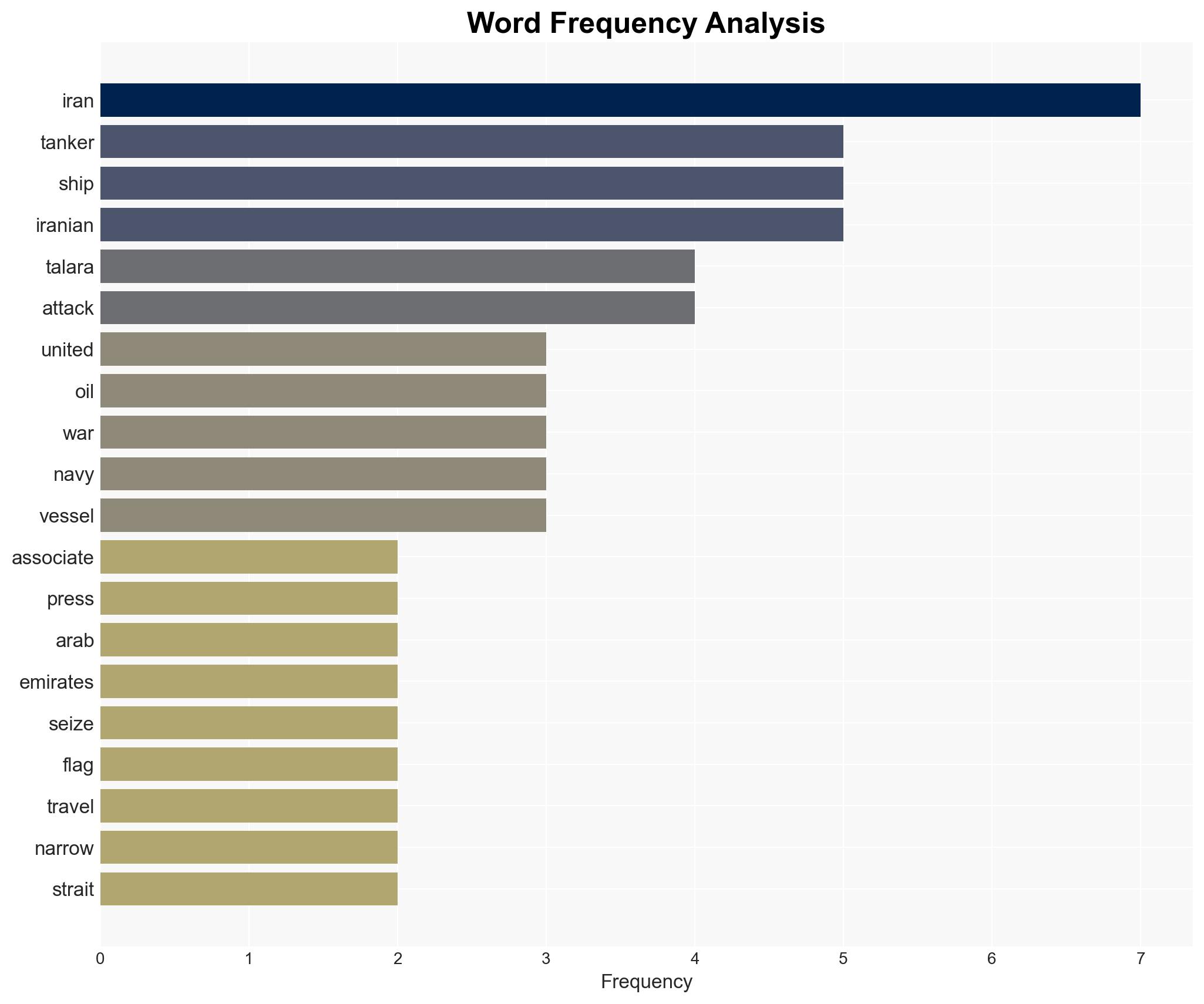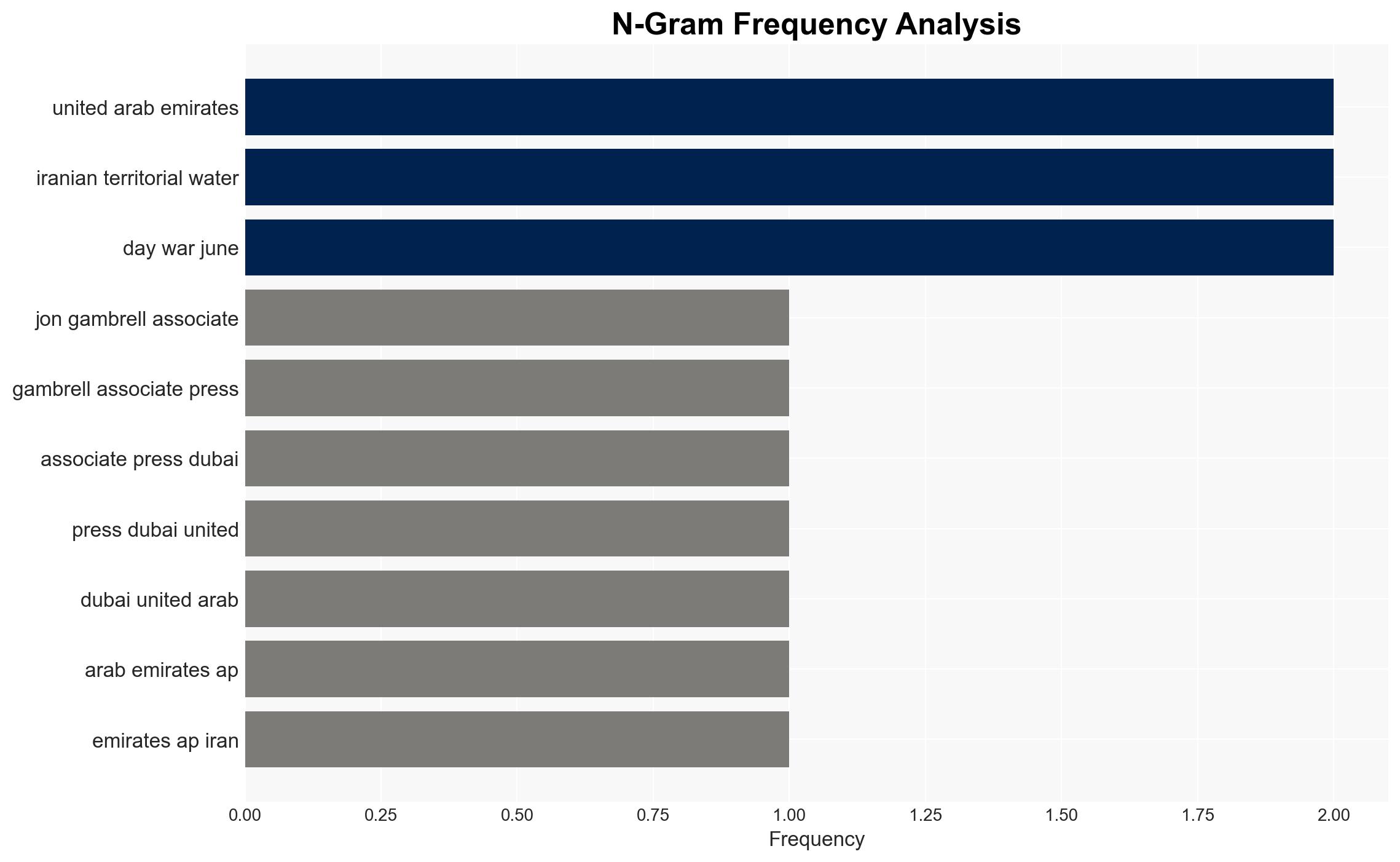Iran seizes tanker in Strait of Hormuz US official says as tensions remain high in region – Boston Herald
Published on: 2025-11-14
AI-powered OSINT brief from verified open sources. Automated NLP signal extraction with human verification. See our Methodology and Why WorldWideWatchers.
Intelligence Report: Iran seizes tanker in Strait of Hormuz US official says as tensions remain high in region – Boston Herald
1. BLUF (Bottom Line Up Front)
With a moderate confidence level, the most supported hypothesis is that Iran’s seizure of the tanker is a strategic maneuver to assert control over the Strait of Hormuz and signal its capacity to disrupt global oil supplies amidst heightened regional tensions. Recommended actions include enhancing diplomatic engagements to de-escalate tensions and increasing maritime security measures in the region.
2. Competing Hypotheses
Hypothesis 1: Iran’s seizure of the tanker is a calculated move to assert its influence over the Strait of Hormuz and demonstrate its ability to impact global oil trade, serving as a deterrent against potential military actions by adversaries.
Hypothesis 2: The seizure is a retaliatory action in response to perceived provocations or threats from Western nations, particularly related to sanctions and military posturing in the region.
Hypothesis 1 is more likely given Iran’s historical pattern of using the Strait of Hormuz as leverage in geopolitical negotiations and its strategic interest in maintaining a credible threat to deter adversaries.
3. Key Assumptions and Red Flags
Assumptions include the belief that Iran’s actions are primarily driven by strategic calculations rather than impulsive decisions. A red flag is the potential for misinterpretation of Iran’s intentions by other regional actors, leading to unintended escalation. Deception indicators include Iran’s public acknowledgment of the seizure, which may be intended to project strength and resolve.
4. Implications and Strategic Risks
The seizure could lead to increased military presence by Western powers in the region, heightening the risk of accidental confrontations. Economically, disruptions in the Strait could impact global oil prices, affecting international markets. Politically, this incident may strain diplomatic relations between Iran and Western nations, complicating negotiations on nuclear and regional security issues.
5. Recommendations and Outlook
- Enhance diplomatic efforts with regional allies and Iran to de-escalate tensions and establish communication channels to prevent miscalculations.
- Increase maritime patrols and intelligence-sharing among allies to ensure the security of commercial vessels in the Strait of Hormuz.
- Best-case scenario: Successful diplomatic negotiations lead to a reduction in tensions and a resumption of dialogue on broader security issues.
- Worst-case scenario: Escalation leads to military confrontations, disrupting global oil supplies and destabilizing the region.
- Most-likely scenario: Continued low-level tensions with periodic incidents, maintaining a status quo of strategic posturing by Iran and its adversaries.
6. Key Individuals and Entities
No specific individuals are mentioned by name in the source text. Relevant entities include the Iranian military forces, the United States Navy, and the United Kingdom Maritime Trade Operations Center.
7. Thematic Tags
Counter-Terrorism, Maritime Security, Geopolitical Tensions, Energy Security
Structured Analytic Techniques Applied
- ACH 2.0: Reconstruct likely threat actor intentions via hypothesis testing and structured refutation.
- Indicators Development: Track radicalization signals and propaganda patterns to anticipate operational planning.
- Narrative Pattern Analysis: Analyze spread/adaptation of ideological narratives for recruitment/incitement signals.
Explore more:
Counter-Terrorism Briefs ·
Daily Summary ·
Support us
·





